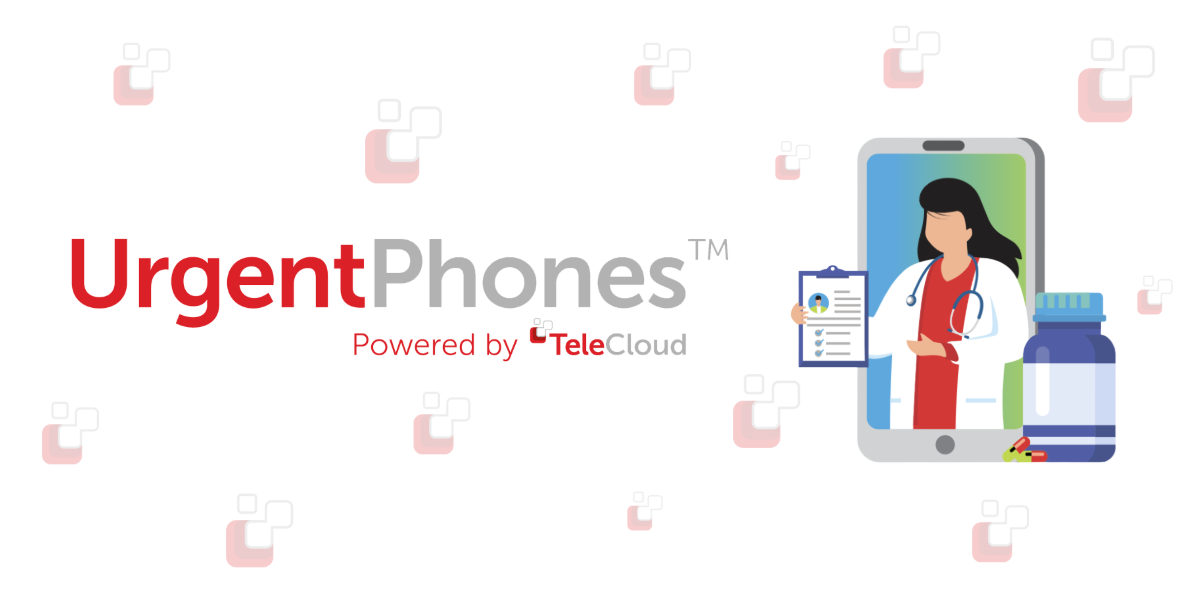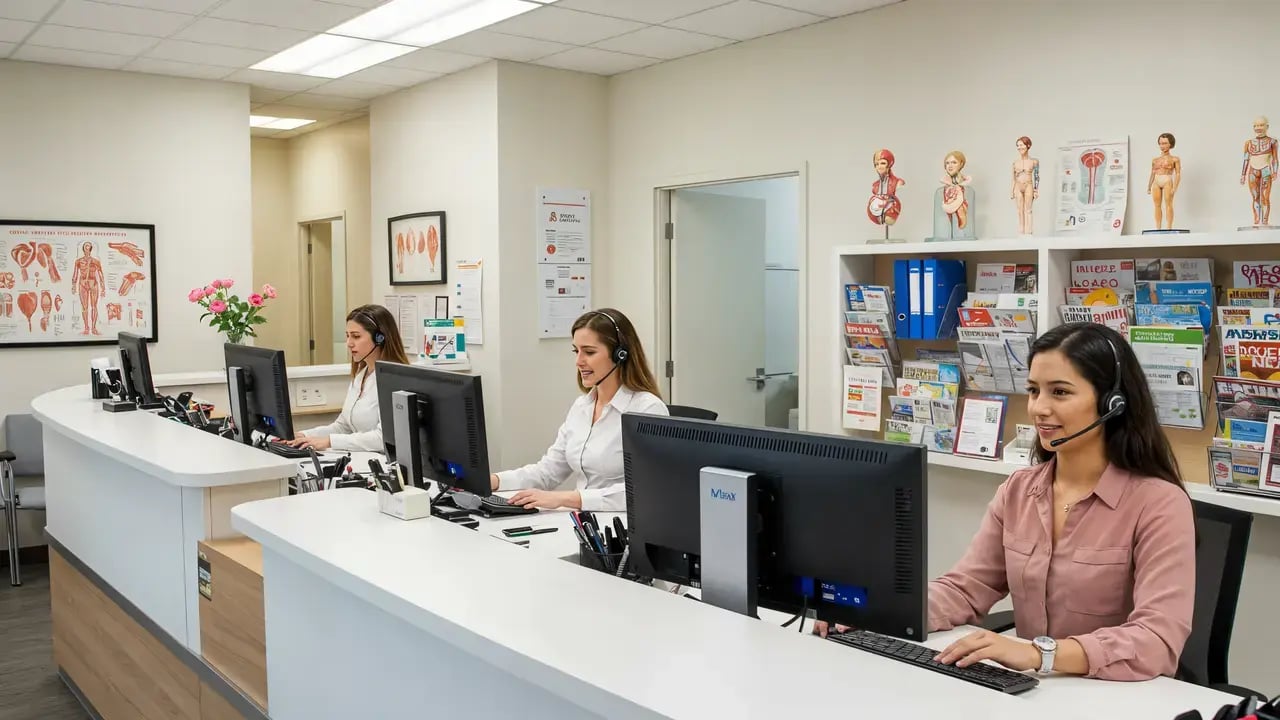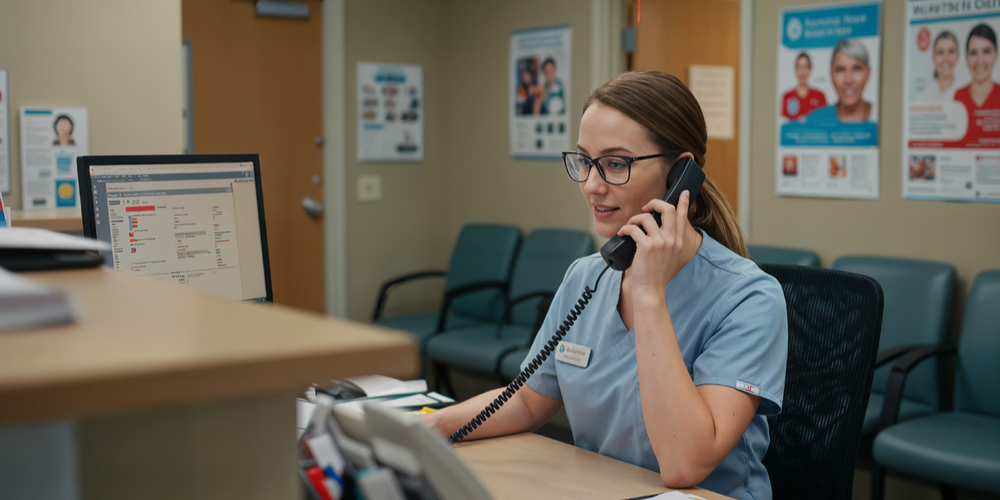Healthcare: What are the Top 3 Appointment Scheduling Challenges?
Updated: November 26th, 2024 | Published: May 11th, 2023
3 min read

Seamless appointment scheduling is the foundation of a great patient experience. From setting the tone for first impressions to ensuring timely care, scheduling plays a pivotal role in patient satisfaction. However, for healthcare organizations, managing appointment logistics isn’t without challenges. Complex scheduling systems, limited resources, and last-minute changes can hinder efficiency and patient experience.
This blog highlights the top appointment scheduling challenges healthcare providers face and explores how modern technology and communication solutions can help overcome them.
Struggling with appointment scheduling? Talk to a telecom expert to explore solutions that simplify scheduling and improve patient care.
Managing Complex Scheduling Needs
Scheduling in healthcare is far from straightforward. 71% of healthcare providers report that scheduling is one of their biggest operational hurdles. Providers must accommodate diverse patient needs, including recurring appointments, specialized care, and complex medical histories.
To ensure high-quality care and minimize costs and patient stress associated with emergency room visits, hospitalizations, or extended wait times, healthcare organizations must schedule patient appointments with the right provider at the right time. However, this task can be difficult and time-consuming, causing frustration for both team members and patients.
The Challenge:
- Time-Consuming Processes: On average, scheduling an appointment over the phone takes 8 minutes, with 5 of those minutes spent on hold.
- Patient Frustration: 32% of patients report frustration with scheduling, leading to dissatisfaction with their overall healthcare experience.
The Solution:
Modern scheduling tools like online booking platforms and automated appointment reminders streamline the process:
- 60% of healthcare providers now offer online scheduling
- 80% use automated appointment reminders, giving patients more control and flexibility.
Save Time, Improve Patient Satisfaction, and Reduce No-Show Rates.
- Healthcare organizations implementing automated appointment reminders see a 36% decrease in no-show rates, and those offering online scheduling options see a 21% increase in patient satisfaction.
- Healthcare organizations that switch to modern communication platforms see a 22% reduction in patient wait times and a 19% increase in team member productivity.
Limited Staff and Resource Availability
Balancing staff availability and patient demand is one of the biggest hurdles healthcare providers face. The inability to align the right provider with the right patient at the right time often leads to delays and dissatisfaction. Whether there is a snowstorm or a pandemic, a business trip, or a work-from-home day, modern organizations must deliver client services from the office, remote locations, or just about anywhere and need access to the same systems with the same data, protected with the same security.
The Impact:
- 60% of patients are willing to switch providers due to long wait times and poor access to care.
- Mismanagement of schedules results in crowded appointment slots, staff burnout, patient frustration, and lost revenue.
- Adverse patient experiences lead to longer wait times, reduced access to care, and losing the patient to a more responsive competitor.
The Solution:
Cloud-based communication systems improve coordination by:
- Allowing staff to work seamlessly from remote locations or different facilities with access to real-time scheduling data.
- Offering enhanced call routing features to ensure that patients connect with the appropriate specialist or department quickly.
With intelligent scheduling systems, providers can better allocate resources to meet patient demand without compromising care quality.
No-Shows, Last Minute Cancellations, and Overbooking
Missed appointments and last-minute cancellations cost the healthcare industry over $150 billion annually, with up to 30% of patients failing to attend their appointments. At the same time, overbooking can create long wait times, leading to patient frustration and staff inefficiency.
The Challenge:
- Overbooking leads to an average wait time of 25 minutes, negatively affecting patient satisfaction.
- Underbooking results in lost revenue and underutilized resources.
- Missed appointments cause a delay in diagnosis or treatment, which can significantly negatively impact the overall satisfaction of healthcare organizations.
The Solution:
- Automated Appointment Management: Notifications and reminders via email, text, or apps reduce no-shows while keeping patients informed.
- Dynamic Scheduling Systems: Advanced systems adjust bookings in real-time, reallocating canceled slots to other patients, ensuring no time is wasted.
Overcoming Challenges with Technology and Innovation
Outdated, archaic phone systems can cause many issues, from “Where did that call go?” to old system programming standards that no longer serve the patients or staff. In urgent situations, these issues can have serious consequences, like missing an important inbound call and voicemail, which is expected, leaving patients frustrated and healthcare providers struggling to keep up.
Modern healthcare communication solutions offer a multitude of benefits:
- Improved Access: Staff and patients can communicate seamlessly via text or call, whether on-site or remote.
- Call Center Software: Ensures no missed or abandoned calls with real-time data and tracking.
- Emergency Failover: Guarantees communication during power or internet outages by routing calls to remote staff or backup systems.
- Enhanced Engagement: Patients can book appointments at their convenience, increasing satisfaction and adherence.
How Modern Communication Tools Can Solve Your Scheduling Challenges
TeleCloud specializes in cloud-based communication systems tailored for healthcare providers. Our solutions are designed to:
- Streamline scheduling and call management.
- Reduce missed appointments with automated reminders.
- Ensure continuous uptime with reliable failover features.
By upgrading your communication infrastructure, TeleCloud helps your organization enhance patient experiences, improve operational efficiency, and stay competitive in an evolving industry.
Ready to optimize your scheduling and communication systems?
Contact TeleCloud today to explore customized solutions for your practice or clinic. Let’s ensure your patients get the care they deserve while your team operates at its best.
vin@telecloud.net OR call/text 908-378-1218
Topics:














